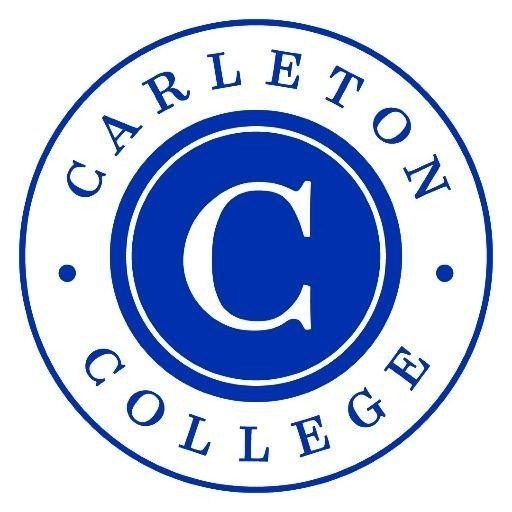Photos of university / #carletoncollege
The Biochemistry program at Carleton College offers students a comprehensive and rigorous education that combines the principles of biology and chemistry to understand the molecular mechanisms underpinning life processes. Designed for students interested in exploring the chemical foundations of biological systems, the program provides a strong foundation in organic, inorganic, physical, and analytical chemistry, alongside in-depth coursework in cell biology, genetics, molecular biology, and physiology. Students enrolled in this program gain hands-on laboratory experience, developing essential skills in experimental design, data analysis, and scientific communication. The curriculum emphasizes both theoretical understanding and practical application, preparing graduates for careers in research, healthcare, biotechnology, or advanced study in graduate or professional schools. Carleton’s close-knit academic environment fosters personalized mentorship and collaborative research opportunities, allowing students to engage in cutting-edge projects alongside faculty members. Through coursework, research internships, and seminars, students deepen their knowledge of biochemistry and its interdisciplinary connections, often addressing real-world problems such as disease mechanisms, drug development, and sustainable bioengineering. The program encourages critical thinking, problem-solving, and ethical scientific conduct, equipping students to contribute meaningfully to scientific advancements and society. Graduates of the Biochemistry program at Carleton College are well-prepared for diverse careers in academia, industry, healthcare, or for further graduate study in biochemistry, molecular biology, or related fields.
The Biochemistry program at Carleton College offers a comprehensive and rigorous curriculum designed to provide students with a deep understanding of the chemical processes that underpin living organisms. This interdisciplinary major combines coursework in chemistry and biology to prepare students for careers in research, healthcare, education, and advanced study in graduate or professional programs. Throughout the program, students engage in both theoretical learning and practical laboratory work, fostering critical thinking and experimental skills essential for scientific inquiry.
The curriculum begins with foundational courses such as General Chemistry, Organic Chemistry, and introductory Biology, establishing the core concepts necessary for more advanced topics. As students progress, they explore specialized subjects including Biochemistry, Molecular Biology, Cell Biology, and Genetics. These courses delve into the molecular mechanisms of enzyme action, gene regulation, metabolic pathways, and cellular function, providing a detailed understanding of how biological systems operate at the molecular level.
In addition to coursework, the program emphasizes laboratory experience and research. Students participate in hands-on experiments, learning techniques such as spectrophotometry, chromatography, and molecular cloning. Opportunities for original research projects are available, often in collaboration with faculty mentors, enabling students to apply their knowledge to real-world scientific questions. This experiential component enhances analytical skills, fosters creativity, and prepares students for careers or advanced study.
The program also incorporates interdisciplinary seminars and electives that explore contemporary topics in biochemistry and related fields such as biotechnology, pharmacology, and environmental science. Through these courses, students gain awareness of current scientific challenges and innovations, cultivating a mindset of lifelong learning and curiosity.
Career preparation is a key focus of the Biochemistry program. Graduates are well-equipped for graduate programs in biochemistry, molecular biology, medicine, and related health sciences, as well as positions in research laboratories, pharmaceuticals, and biotechnology industries. The program’s emphasis on both foundational knowledge and practical skills ensures that students leave with a robust scientific background and the ability to contribute meaningfully to scientific and societal advancements.
Overall, Carleton College’s Biochemistry program aims to develop scientifically literate graduates who possess a thorough understanding of the chemical basis of life, combined with laboratory expertise and research experience. This prepares them to excel in diverse scientific careers and to address complex biological problems with confidence and integrity.
The biochemistry program at Carleton College provides a comprehensive curriculum designed to give students a solid foundation in both biology and chemistry, emphasizing the chemical processes within and related to living organisms. To earn a Bachelor of Arts degree in Biochemistry, students typically must complete a series of required courses along with electives that allow for specialization and exploration of advanced topics. The core requirements generally include introductory courses in general chemistry, organic chemistry, and biology, as well as more specialized courses in biochemistry, physical chemistry, and molecular biology. Laboratory components are integral to the program, ensuring students gain hands-on experience in experimental techniques and scientific analysis.
Students are also encouraged to take mathematics courses, including calculus and statistics, to support their understanding of quantitative aspects of biochemistry and data analysis. In addition to coursework, research experiences are highly valued, and opportunities are often available through faculty-led projects, summer research programs, or independent study options. To promote a well-rounded education, students may choose electives in related disciplines such as physics, computer science, or neuroscience. The program aims to prepare graduates for diverse career paths, including graduate studies, medical school, research positions, or careers in biotechnology and healthcare.
Throughout the program, students are expected to develop critical thinking, problem-solving skills, and a strong understanding of scientific literature. Maintaining a competitive GPA, especially in science courses, is important for those wishing to pursue graduate or professional schools. The curriculum is designed to be rigorous yet flexible, allowing students to tailor their academic experience to their interests and career goals. Overall, the Biochemistry program at Carleton College emphasizes an integrative approach to understanding biological systems at the molecular level, with a strong emphasis on experimental skills, quantitative reasoning, and scientific communication.
The Carleton College Biochemistry program offers a comprehensive financing structure designed to support students throughout their academic journey. As a private liberal arts college, Carleton College primarily funds its programs through a combination of tuition fees, endowment income, donations, and grants. For undergraduate students enrolled in the Biochemistry program, the college provides a range of financial aid options aimed at making education accessible and affordable.
Financial aid at Carleton College is need-based, ensuring that admitted students receive personalized support based on their financial circumstances. The college offers need-based grants that do not require repayment, reducing the burden of tuition costs for eligible students. To determine financial need, students must submit the Free Application for Federal Student Aid (FAFSA) and the College Scholarship Service (CSS) Profile. These forms provide a detailed picture of the family's financial situation, allowing the college to allocate aid accordingly.
In addition to grants, Carleton College provides additional funding opportunities such as merit-based scholarships, which are awarded based on academic excellence, leadership, or special talents. The college also offers work-study programs, enabling students to earn money by participating in on-campus employment, which helps offset living expenses and other costs associated with their studies.
Tuition fees for the Biochemistry program are set annually and include costs for instruction, laboratory supplies, and access to college facilities. While tuition is a significant part of the expenses, many students also rely on external sources of funding. These might include federal and state scholarships, private scholarships, and family contributions. The college's financial aid package often combines these sources to meet the demonstrated financial need of the student.
Carleton College is committed to transparency in its financial aid policies and encourages prospective students to apply early. The college reviews applications holistically, considering academic achievements, extracurricular involvement, and financial circumstances. The goal is to ensure that deserving students from diverse backgrounds can pursue a degree in Biochemistry without the obstacle of financial hardship.
The college also emphasizes long-term affordability through initiatives such as the Carleton Promise, which guarantees that students from families with a total income below a certain threshold will receive enough financial aid to cover the full cost of attendance. This initiative underscores Carleton’s dedication to enabling access to high-quality liberal arts education for all qualified students.
Overall, the financing of the Biochemistry program at Carleton College is structured to provide robust support through a mix of need-based aid, scholarships, and work opportunities, ensuring that financial constraints do not prevent talented students from engaging in this rigorous scientific discipline.
The biochemistry program at Carleton College offers students a comprehensive exploration of the chemical processes that underpin biological systems. This interdisciplinary major combines courses from chemistry, biology, and related fields to provide a rigorous foundation in molecular biology, organic and inorganic chemistry, and physical chemistry. Students gain an understanding of the structure and function of biomolecules, metabolic pathways, and genetic mechanisms, preparing them for careers in research, health sciences, or further graduate studies. The curriculum emphasizes laboratory experiences, critical thinking, and experimental design to develop practical skills alongside theoretical knowledge. Carleton’s state-of-the-art facilities and faculty expertise create an environment conducive to hands-on learning and discovery. The program often encourages undergraduate research, providing opportunities for students to work alongside faculty on projects that contribute to current scientific understanding. Graduates of the biochemistry program have pursued careers in medical research, pharmaceuticals, environmental science, and academia. The college’s commitment to small class sizes and personalized education ensures that students receive mentorship and support tailored to their interests and academic goals, encouraging them to contribute meaningfully to the scientific community. Furthermore, the program prepares students for graduate-level study in biochemistry, molecular biology, or related disciplines, fostering a deep appreciation of the scientific method and fostering skills in data analysis, scientific communication, and collaboration. Overall, Carleton College’s biochemistry program aims to cultivate scientists equipped with the knowledge, skills, and ethical understanding necessary to make meaningful contributions to science and society.







